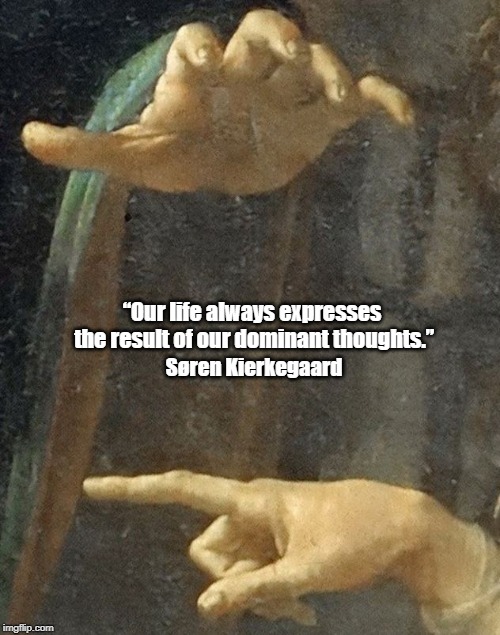Why Haters Hate: Kierkegaard Explains the Psychology of Bullying and Online Trolling in 1847
 Celebrated as the first true existentialist philosopher, Danish writer and thinker Søren Kierkegaard (May 5, 1813–November 11, 1855) may have only lived a short life, but it was a deep one and its impact radiated widely outward, far across the centuries and disciplines and schools of thought. He was also among the multitude of famous writers who benefited from keeping a diary and nowhere does his paradoxical blend of melancholy and idealism, of despair about the human condition and optimism about the purpose of life, shine more brilliantly than in The Diary of Søren Kierkegaard (public library) — a compendium of Kierkegaard’s frequently intense, always astoundingly thoughtful reflections on everything from happiness and melancholy to writing and literature to self-doubt and public opinion.
Celebrated as the first true existentialist philosopher, Danish writer and thinker Søren Kierkegaard (May 5, 1813–November 11, 1855) may have only lived a short life, but it was a deep one and its impact radiated widely outward, far across the centuries and disciplines and schools of thought. He was also among the multitude of famous writers who benefited from keeping a diary and nowhere does his paradoxical blend of melancholy and idealism, of despair about the human condition and optimism about the purpose of life, shine more brilliantly than in The Diary of Søren Kierkegaard (public library) — a compendium of Kierkegaard’s frequently intense, always astoundingly thoughtful reflections on everything from happiness and melancholy to writing and literature to self-doubt and public opinion.
In an immeasurably insightful entry from 1847, 34-year-old Kierkegaard observes a pervasive pathology of our fallible humanity, explaining the same basic psychology that lurks behind contemporary phenomena like bullying, trolling, and the general assaults of the web’s self-appointed critics, colloquially and rather appropriately known as haters.

Kierkegaard writes:
There is a form of envy of which I frequently have seen examples, in which an individual tries to obtain something by bullying. If, for instance, I enter a place where many are gathered, it often happens that one or another right away takes up arms against me by beginning to laugh; presumably he feels that he is being a tool of public opinion. But lo and behold, if I then make a casual remark to him, that same person becomes infinitely pliable and obliging. Essentially it shows that he regards me as something great, maybe even greater than I am: but if he can’t be admitted as a participant in my greatness, at least he will laugh at me. But as soon as he becomes a participant, as it were, he brags about my greatness.
That is what comes of living in a petty community.

It is unlikely that Kierkegaard was aware of what would become known as the Benjamin Franklin Effect — the Founding Father formulated his famous reverse-psychology trick for handling haters — and yet he goes on to relay an anecdote that embodies it perfectly. He recounts coming upon three young men outside his gate who, upon seeing him, “began to grin and altogether initiated the whole gamut of insolence.” As he approached them, Kierkegaard noticed that they were smoking cigars and turned to one of them, asking for a light. Suddenly, the men’s attitude took a dramatic U-turn — the seemingly simple exchange had provided precisely that invitation for participation in greatness:
Instantly, all three doffed their hats and it would seem I had done them a service by asking for a light. Ergo: the same people would be happy to cry bravo for me if I merely addressed a friendly, let alone, flattering word to them; as it is, they cry pereat [he shall perish!] and are defiant… All it amounts to is play-acting. But how invaluably interesting to have one’s knowledge of human psychology enriched in this way.

Søren Aabye Kierkegaard
Wikiquote
Seven years later, shortly before his untimely death, he revisits the subject in a sentiment that explains with enduring insight the psychology of haters:
Showing that they don’t care about me, or caring that I should know they don’t care about me, still denotes dependence… They show me respect precisely by showing me that they don’t respect me.

The Diary of Søren Kierkegaard may be short in both pages and lifetime covered, but it is a treasure trove of equally penetrating insights into the human experience. Complement it with Kierkegaard on our greatest source of unhappiness, then revisit Anne Lamott’s brilliant modern manifesto for handling haters.

No comments:
Post a Comment